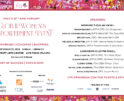
Maximum Diversity

In the age of global warming, traditional corporate diversity programs don’t go far enough.
By Joey Reiman
If the next decision you make as a leader does not take into account all species in the living organism we call Earth, you are not practicing “Maximum Diversity.”
â¨â¨Maximum Diversity calls on organizations to respect not just our own but all species when doing business. If we build a skyscraper, how will it affect the birds that flew there before? If we all drive to work, how far will the negative impact of our travels travel?
â¨â¨If the concept of bioempathy seems too far-out, watch as tomorrow’s business decisions begin to consider our interconnectedness with the planet’s 1.8 million known species.
â¨â¨Diversity has always focused on inclusion of people. More recently, the definition has been expanded to incorporate such concepts as diversity of thought. But is this enough? Who are we as a species to exclude all others? For companies that institute a Maximum Diversity policy, the circle of empathy expands to embrace not just people but all plant and animal species.
Jay M. Short, Ph.D., founder, president and chairman of the E.O. Wilson Biodiversity Foundation, says humans and big business are to blame for the decline in biodiversity. “Our success as a species has threatened other species. Over half of our species could be gone by 2100.” One day, he hopes, instead of merely asking how a decision might impact women or minorities, companies will ask how it will impact all living things.
â¨â¨”Maximum Diversity is an intriguing way to think about diversity and community,” adds Roslyn Dickerson, senior vice president of diversity and inclusion for Inter Continental Hotels Group. She points to her company’s focus on green hotels and energy conservation, as well as its practice of opening hotels in economically depressed areas. But Dickerson also worries that expanding the definition may minimize the importance of race and gender diversity, since clearly work in this area “is still not done.”
Stephanie Meeks, former acting president and CEO of The Nature Conservancy, sees significant benefits to this new philosophy. “There’s a moral imperative to Maximum Diversity as the world’s re sources are shrinking while the human population is thriving.” She believes “there are ‘win-win’ solutions that are good for business and the right thing to do.”
â¨â¨Meeks points to the Conservancy’s effort to save Canada’s Great Bear rainforest, some 21 million acres near Vancouver inhabited by indigenous people. “We helped raise $58 million to support previously negotiated land use agreements. At least 5 million acres will be off-limits to logging and more than 19 million under strict land management guide lines called ecosystem-based management,” she says. “The people who live there want the jobs that logging brings, but the forest is also part of their culture.”
Policies and laws related to ethnicity, gender, color, sexual orientation and body size are all about respecting differences. The idea of Maximum Diversity is equipped to thrive in a marketplace where a company’s appearance is a competitive advantage. The new organization will mirror life on our planet.
Joey Reiman is a leading authority on purposeful excellence in business. He is CEO of the global marketing consultancy BrightHouse and teaches purpose and ideation at Goizueta Business School, Emory University.
â¨â¨Kathryn Whitbourne contributed to this article.
This article originally appeared in the October 2007 issue of PINK Magazine.
Recommended
-
Fall 2024 EventNovember 19th, 2024
-
REGISTER HERE FOR THE UPCOMING...September 19th, 2024
-
Spring Sales Are Ready To Bloo...March 1st, 2024
-
Two Months Away!August 24th, 2023
-
Pink’s Signature Spring ...May 17th, 2023















